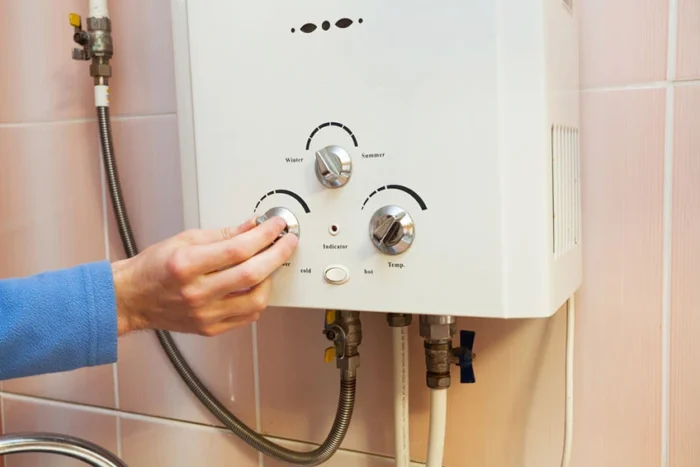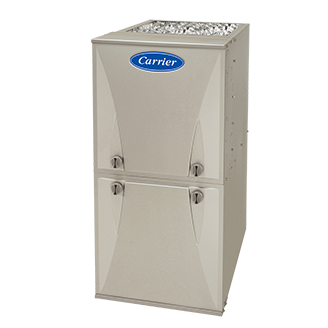Understanding Should You Turn Off Water Heater When Water Is Off
Water heaters need water inside the tank to function properly. When you turn off the main water supply, the tank still holds water unless you drain it completely. This remaining water acts as a buffer, preventing the heating elements or burner from running dry.
The real problem starts when your tank runs empty or nearly empty. Electric water heaters use heating elements submerged in water. These elements need water around them to dissipate heat. Without water, they overheat quickly and burn out. Gas water heaters face similar issues. The burner can overheat the tank bottom, causing permanent damage to the metal.
Low water pressure creates another concern. When pressure drops too low, the system might activate without enough water present. This leads to overheating and potential safety hazards.
Think of it like running your car without oil. The engine might run for a bit, but damage happens fast. Your water heater works the same way. Water acts as both the product and the cooling mechanism.
Is It Safe to Turn Off Water to Water Heater
Turning off water to your heater is generally safe for short periods. The key factor is how long the water stays off and whether the tank remains full.
For quick repairs lasting an hour or two, you can leave the water heater turned off without worry. The tank holds enough water to prevent problems. Once repairs finish and water pressure returns, everything should work normally.
Problems arise during extended shutdowns. If you’re draining the main water line for several hours or days, you need to shut down the heater. Here’s why this matters:
Electric Units: The heating elements cycle on automatically based on temperature. If the tank empties while power stays on, the elements will fire up with no water around them. This destroys the elements within minutes.
Gas Units: The thermostat triggers the burner when water temperature drops. An empty tank means the burner heats nothing but air and metal. This warps the tank and creates fire risks.
Water pressure plays another role. Modern water heaters have safety features that prevent operation without adequate pressure. Older units lack these protections. If you own an older model, err on the side of caution.
Milehi Hvac has seen countless preventable failures from homeowners who left units running during water shutdowns. A simple flip of the switch saves hundreds in repair costs. Our water heater installation in Denver includes full education on these safety practices.
When You Should Turn Off Your Water Heater
During Main Water Supply Shutdowns
City maintenance, broken water mains, or major plumbing work might require shutting off your main water supply. Here’s your action plan:
For Short Shutdowns (Under 4 Hours): Check if your tank is full before the water stops. If it is, you can leave the heater running. The water inside won’t drain, and the unit stays protected.
For Extended Shutdowns (Over 4 Hours): Turn off the heater. Use the circuit breaker for electric models or the gas valve for gas units. This precaution prevents the dry-fire scenario that ruins heating elements.
If You’re Draining the Tank: Always shut off power or gas before draining. Connect a hose to the drain valve and empty the tank completely. This prevents sediment buildup and prepares the unit for extended inactivity.
When Dealing With Leaks
A leaking water heater demands immediate attention. Water pooling around the base signals a serious problem. Don’t wait or try to diagnose the issue while it’s running.
Step One: Cut the power. For electric heaters, flip the breaker. For gas models, turn the gas supply valve to “OFF.” This stops the heating process immediately.
Step Two: Close the cold water shutoff valve. You’ll find this near the top of the tank. Turn it clockwise until tight. This stops fresh water from entering and making the leak worse.
Step Three: Drain what you can. Attach a garden hose to the drain valve if safe to do so. Direct water away from the heater and any electrical outlets.
Small leaks might seem manageable, but they indicate bigger problems. Corrosion, failing gaskets, or tank cracks all lead to catastrophic failure. Professional inspection becomes necessary.
During Vacation or Extended Absence
Leaving home for weeks or months raises energy and safety concerns. Your hot water heater turn off valve helps manage both.
Weekend Trips: Leave everything as-is. The energy use stays minimal, and turning systems on and off creates more wear.
Vacations (1-2 Weeks): Switch to vacation mode if available. This setting maintains around 50 degrees, preventing freeze damage while cutting energy costs by 30-40%.
Extended Absence (Over a Month): Shut down completely. Turn off the cold water supply, then drain the tank. This prevents stagnant water issues and eliminates standby energy loss.
Many homeowners skip the drainage step, but stagnant water breeds bacteria. When you return and fire up the system, that bacteria flows through your pipes. A full drain and refill solves this.
During Maintenance or Repairs
Any work on your plumbing system benefits from turning off a gas water heater or electric unit. This creates a safer work environment and protects the appliance.
Replacing fixtures, updating pipes, or installing new appliances all involve water shutoffs. When the main water turns off, follow the same guidelines mentioned earlier. Check the tank level and duration of work.
Professional plumbers always shut down water heaters during major work. This standard practice prevents accidents and equipment damage. If you’re DIYing repairs, follow their lead.
During Power Outages
Electric heaters automatically stop working when power fails. No action needed. The system stays safe until electricity returns.
Gas heaters continue operating during power outages. Most models have safety features that prevent problems. Check your manual for specific guidance. Some manufacturers recommend turning off the gas during extended outages to prevent pilot light issues.
You may read Water Heater Working But No Hot Water?
How to Turn Off a Gas Water Heater
Turning off a gas water heater takes just a few minutes. The process protects your investment and prevents safety issues.
Locate the Gas Control Valve: Find the gas line feeding your water heater. The control valve sits right where the line connects to the unit. It has three settings: ON, OFF, and PILOT.
Turn to OFF: Rotate the knob to the OFF position. This stops gas flow completely. You’ll hear the burner shut down within seconds.
Close the Cold Water Supply: Find the shutoff valve on the cold water pipe entering the top of the tank. Turn it clockwise until it stops. This prevents new water from entering.
Optional Draining: If you’re shutting down for an extended period, drain the tank. Connect a garden hose to the drain valve at the tank bottom. Run the hose outside or to a floor drain. Open the pressure relief valve to let air in. Open the drain valve and let water flow out.
When restarting, reverse these steps. Fill the tank completely before turning on the gas. Open a hot water faucet in the house to bleed air from the lines. Once water flows steadily, close the faucet and relight the pilot according to your manual.
Practical Tips for Water Heater Safety
Regular maintenance extends your water heater’s life and prevents emergency shutdowns. Here’s what works:
Annual Flushing: Drain several gallons from the tank yearly. This removes sediment that reduces efficiency and causes damage.
Temperature Checks: Keep your thermostat between 120-130 degrees. Higher temperatures waste energy and risk scalding. Lower settings allow bacteria growth.
Pressure Valve Testing: Test the temperature and pressure relief valve annually. Lift the lever and let it snap back. Water should discharge, then stop. If it doesn’t, replace the valve.
Anode Rod Inspection: This metal rod prevents tank corrosion. Check it every three years. Replace when it’s less than half an inch thick or covered in calcium.
Milehi Hvac recommends professional inspections every two years. Our technicians catch small issues before they become expensive repairs. Gas Water heater installation in Denver includes a comprehensive maintenance schedule tailored to your specific model.
Common Mistakes to Avoid
Homeowners make several errors when dealing with water shutoffs. Avoid these pitfalls:
Leaving the Power On: Never assume the water heater will be fine during extended water shutoffs. Always err on the side of caution and turn it off.
Forgetting to Refill: After draining the tank, refill it completely before restoring power. Open hot water taps to bleed air from the system.
Ignoring Warning Signs: Strange noises, rusty water, or fluctuating temperatures signal problems. Address them immediately rather than waiting for failure.
Skipping Professional Help: Some repairs seem simple but require expertise. Incorrect fixes create dangerous situations. When in doubt, call a licensed plumber.
Conclusion
The question of should you turn off water heater when water is off depends on your specific situation. Short water shutdowns with a full tank rarely need action, but extended shutoffs always require turning off the unit. Leaks, vacations, and maintenance work each have their own requirements. Following these guidelines protects your investment and keeps your home safe. When you need professional help with water heater issues, Milehi Hvac provides expert water heater installation in Denver and comprehensive maintenance services. Call us today for reliable solutions you can trust.
FAQs
How long can a water heater run without water?
Electric water heaters fail within minutes when running dry. Gas heaters last slightly longer but still suffer damage quickly. Never run your heater without water in the tank.
Will my water heater freeze if I turn it off?
In heated spaces, freezing isn’t a concern. In unheated areas like garages or crawl spaces, drain the tank completely if temperatures drop below 32 degrees.
Can I turn my water heater back on immediately?
Only if the tank is full. After draining or repairs, refill the tank completely before restoring power or gas. Open hot water faucets to bleed air from the lines.
What temperature should I set during vacation mode?
Between 50-55 degrees prevents freezing while cutting energy costs. This setting maintains the system without wasting electricity or gas.
Do tankless water heaters need special care during water shutoffs?
Tankless units don’t store water, so they’re less vulnerable. Still, turn off the power during extended maintenance to prevent the unit from attempting to heat when water returns.
Whether you require installation, repair, or maintenance, our technicians will assist you with top-quality service at any time of the day or night. Take comfort in knowing your indoor air quality is the best it can be with MOE heating & cooling services Ontario's solution for heating, air conditioning, and ventilation that’s cooler than the rest.
Contact us to schedule a visit. Our qualified team of technicians, are always ready to help you and guide you for heating and cooling issues. Weather you want to replace an old furnace or install a brand new air conditioner, we are here to help you. Our main office is at Kitchener but we can service most of Ontario's cities
Source link


